During every election cycle, there are storylines or interpretive memes that are widely repeated but turn out to be completely irrelevant or plain wrong. Early in this presidential cycle, yesterday’s cliches about the presidential race seem to be exploding all around us. Perhaps the biggest is the claim that governors make the best presidential candidates.
This ancient trope is based partly on statistics, notes Five Thirty Eight’s Nate Silver:
Throughout American history, about twice as many governors as senators have been chosen to be standard bearers by the major parties, even though at any given moment there are only half as many sitting governors as sitting senators.
Statistics aside, it’s plausible that executives are a more natural fit for Chief Executive than career legislators. And in an era of raging anti-Washington sentiment, it makes sense that a record free of complicity with the federal government’s deeds and misdeeds could be an advantage.
All these factors were supposed to make the rich bumper crop of GOP governors and former governors in the field this year the collective frontrunners. But in case after case, their records back home are undermining their credibility or even threatening their freedom.
Chris Christie and Bobby Jindal are both suffering from calamitously bad approval ratings in the states they govern. Christie’s is at 38/56 according to a new Quinnipiac poll. Jindal was at 27/63 in a March poll, and with a frightful state budget situation, it looks as though he hasn’t hit bottom. And the otherwise high-flying Scott Walker’s popularity in Wisconsin has recently hit a very bad patch, with the famously objective Marquette Law School poll just last week showing him at 41/56, and worse yet, trailing Hillary Clinton by double digits. Walker’s most recent budget is also getting panned by big majorities of Wisconsin voters. This is a particularly unfortunate development for a candidate whose entire “electability” argument is based on his popularity in Wisconsin, a state that Obama has carried twice but Walker has won three times (in lower-turnout nonpresidential elections, to be sure).
Rick Perry has left office, but is under indictment for alleged abuses of power as governor. Christie and Walker also have to worry about prosecutorial footsteps, though experts differ on the risk of the hoosegow either faces.
Jeb Bush, for whom the statute of limitations has probably tolled on any violations of law he might have committed, is suffering from some gubernatorial blowback. His Florida rival Marco Rubio is reportedly setting up a superPAC to be lavishly funded by a billionaire who is still angry about a 2004 Bush veto of an appropriation to benefit a cancer research project set up in his sister-in-law’s name.
We already know from what they did to him in 2008 that Mike Huckabee’s nemesis, the Club for Growth (or as he has called it, the “Club for Greed”) is undoubtedly waiting in the weeds with another recitation of his tax-raising behavior as Arkansas governor.
And then there’s Indiana Gov. Mike Pence, a might-have-been presidential candidate whose national viability was atomized almost overnight by his clumsy handling of a “religious liberty” bill, which wound up offending just about everybody while making him look like a deer in the culture-war headlights.
The exception to the rule that gubernatorial service has been at least a mixed blessing in the GOP field is the barely-visible John Kasich of Ohio, but even in his case gubernatorial duties have caused him to mosey up to the starting gate of a potential presidential candidacy with an unimpressive lack of dispatch or focus.
(Perhaps the gubernatorial sins of Jim Gilmore and George Pataki will come back to haunt them if anyone notices their presence on the campaign trail. For now they are operating safely under the radar screen.)
Even on the Democratic side, Martin O’Malley’s two terms as governor of Maryland have become an unexpected millstone in a possible presidential run, as his tax policies have drawn some blame for the shocking November 2014 loss by his intended successor, Anthony Brown.
The idea of the governor savior isn’t the only meme losing altitude every moment of this young presidential cycle. Some start leaking air even as they are launched: for example, the suggestion by National Review’s Eliana Johnson that John McCain’s 2008 comeback in New Hampshire might offer a template for damaged-goods 2016 hopeful Chris Christie.
What the two campaigns have in common is really really bad early performance, to the point where buzzards start circling. But there are a few differences: McCain remained relatively popular throughout his early campaign missteps, and his unpopularity was largely associated with a commitment to immigration reform he soon abandoned, while Christie’s popularity in New Jersey and nationally has been steadily sinking like a stone. McCain recovered by adopting positions Republican voters like, while Christie is embracing positions on Social Security that nobody—particularly Republican voters—likes. McCain was a war hero with an unquestioned reputation for integrity. Christie’s loved and hated for being a bully, and is under a growing ethical cloud.
And finally, McCain’s comeback was a political miracle that depended on a demolition derby that improbably took out all his leading opponents. Christie’s facing a huge field featuring some candidates that are too big (financially) to fail before the voting’s well underway.
Other than that, the analogy’s perfect—just like a lot of the soon-to-be-discarded cliches of Campaign 2016.
Ed Kilgore is the principal blogger for Washington Monthly’s Political Animal blog, Managing Editor of The Democratic Strategist, and a Senior Fellow at theProgressive Policy Institute. Earlier he worked for three governors and a U.S. Senator. He can be followed on Twitter at @ed_kilgore.





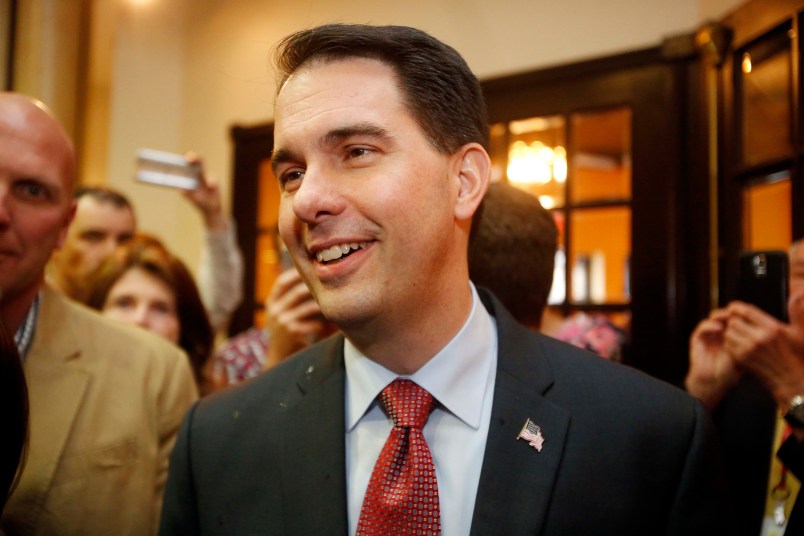
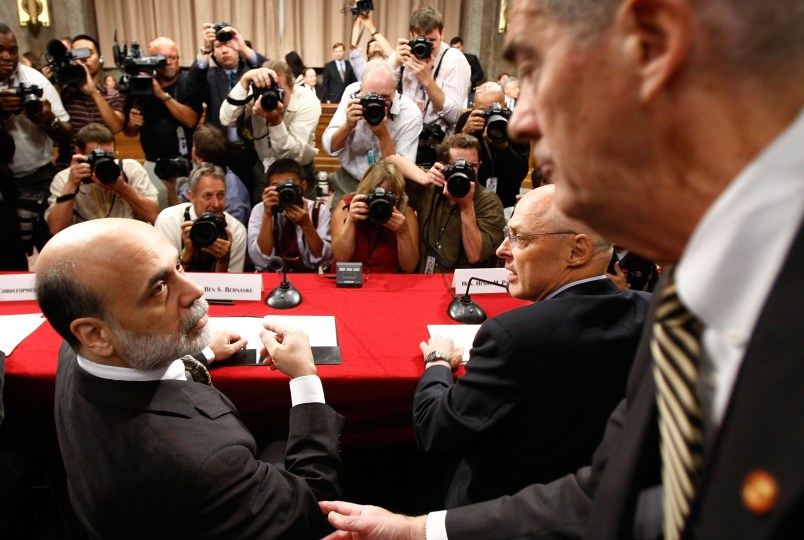
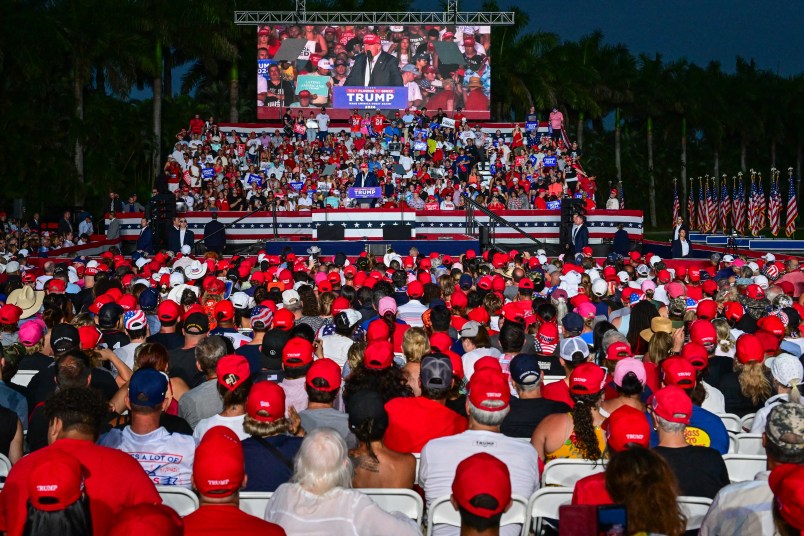
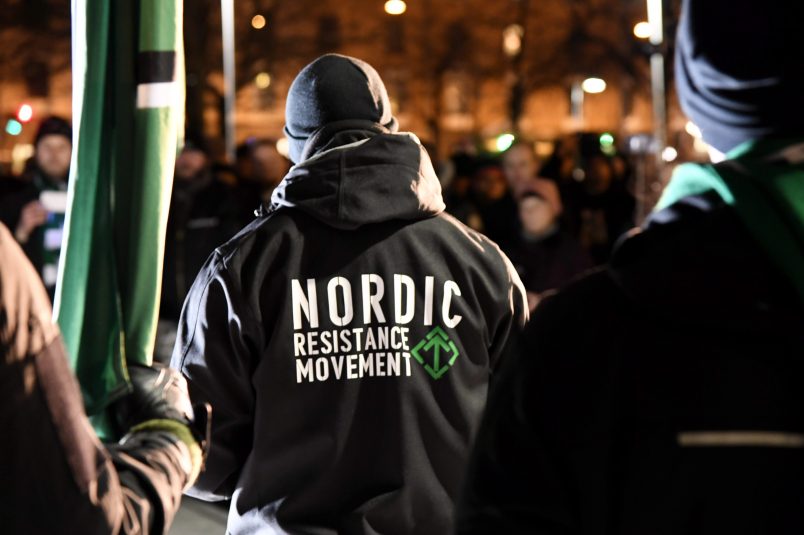
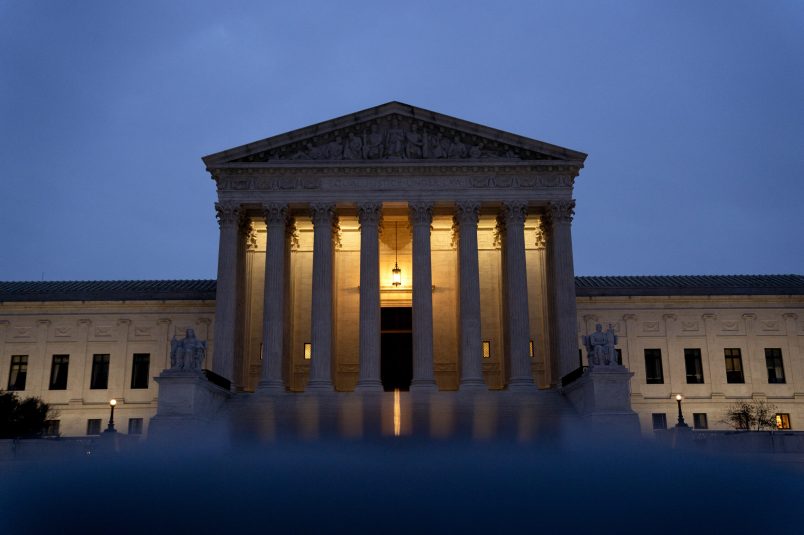
If you are basing your prospects on myth and clichés you probably have already lost.
They are bad governors because they reflect the core GOP philosophy that government is bad. Curiously enough that philosophy is also the central tenet of most billionaires.
A coincidence to be sure.
They say That Scott walker is the Koch brothers choice to run for POTUS,do they really want to put him one on one with Hillary ? I think not.This will be IMHO the most entertaining presidential race in years especially on the Republican side.
The clown car could not be anymore aptly named,and with the new self driving technology couldn’t ask for a better gift.This way the performers can just do their thing.
The motivation behind the idea that governors are better is that the jobs of governor and president are both about executive ‘leadership’ (whatever ‘leadership’, nobody can define the effin word.)
But these days, being a governor is largely being a glorified civil service employee, implement your states share of federal programs.(So maybe they get bored and start a side business taking bribes, e.g. CC.) Most state legislatures work part time (well the federal one seems part time too, though they have a full time workload and the states don’t.)
Candidates with federal experience are more likely to grasp the issues handled by the federal government well. (I know, Rand Paul proves me wrong, but I said ‘more likely’. Also, it applies to candidates who are running because they have done well in their current job, not because they are delusional buffoons.) Here Bill Clinton is an exception, even as a backwoods governor he understood federal issues better than almost anyone.
“McCain was a war hero with an unquestioned reputation for integrity.”
Huh? Unquestioned reputation for integrity?
“The Keating Five were five United States Senators accused of corruption in 1989, igniting a major political scandal as part of the larger Savings and Loan crisis of the late 1980s and early 1990s. The five senators – Alan Cranston (Democrat of California), Dennis DeConcini (Democrat of Arizona), John Glenn (Democrat of Ohio), John McCain (Republican of Arizona), and Donald W. Riegle, Jr. (Democrat of Michigan) – were accused of improperly intervening in 1987 on behalf of Charles H. Keating, Jr., Chairman of the Lincoln Savings and Loan Association, which was the target of a regulatory investigation by the Federal Home Loan Bank Board (FHLBB). The FHLBB subsequently backed off taking action against Lincoln.”
And I also question his war “hero” status. Yes he was a POW, but heroic? I don’t think so. Finally, Palin put the nail in his coffin and his bitter behavior since he lost has hammered it closed.